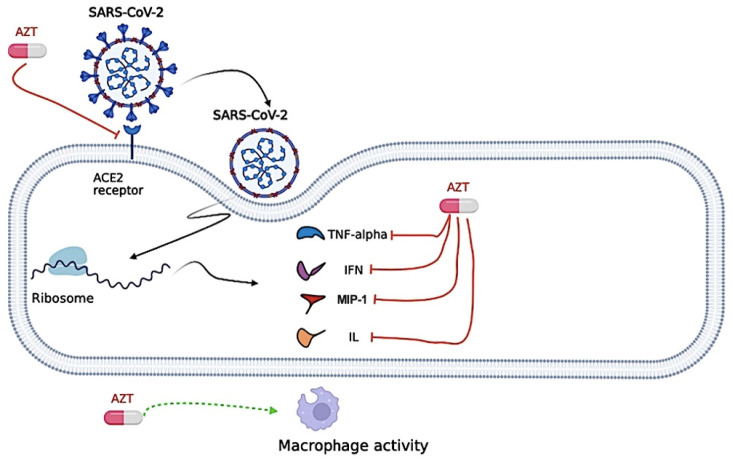Figure 5.
Proposed antiviral mechanism of Azithromycin (AZT). Azithromycin seems to negatively regulate the inflammatory cascade, attenuating the excessive production of cytokines [Tumor necrosis factor alpha (TNF-α), Interferon (INF), Interleukin (IL), and Macrophage Inflammatory Protein-1 (MIP-1)] in viral infections. Azithromycin can also influence phagocytic activity by modifying several functions, including chemotaxis, phagocytosis, oxidative burst, bacterial killing, and cytokine production. Azithromycin could interfere with the binding between the severe acute respiratory syndrome coronavirus 2 (SARS-CoV-2) Spike protein and the Angiotensin Converting Enzyme (ACE)-2 receptor protein, preventing the virus from entering the cell. The figure was created in BioRender (BioRender.com).

